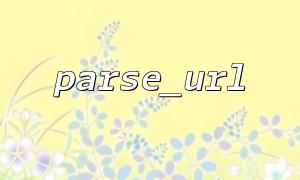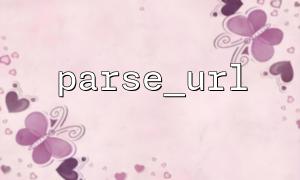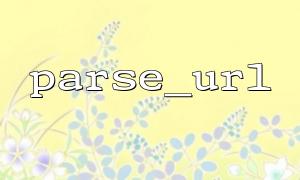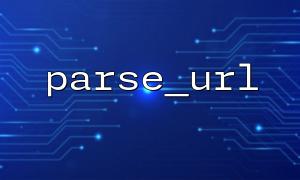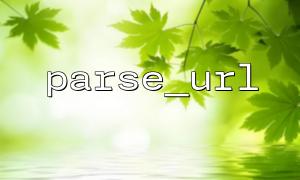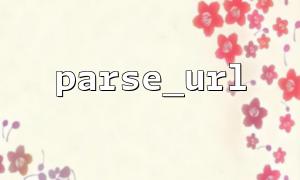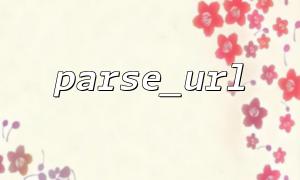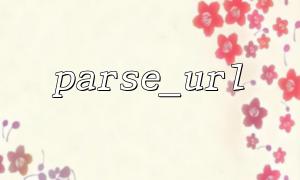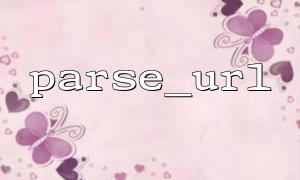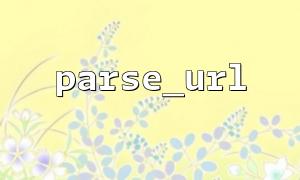In PHP, parse_url is a powerful function for parsing URLs. It can split a URL into multiple parts (such as scheme, host, path, query, etc.), which greatly facilitates developers' processing of URLs. However, if you encounter a situation where false is returned while using parse_url , it means that the parsing has failed. This article will analyze in-depth the common reasons why parse_url returns false and how to deal with it.
Let’s first look at a normal usage example:
$url = "https://gitbox.net/path/to/resource?query=123";
$parsed = parse_url($url);
print_r($parsed);
The output will be:
Array
(
[scheme] => https
[host] => gitbox.net
[path] => /path/to/resource
[query] => query=123
)
When parse_url handles a properly structured URL, it returns an associative array containing the various components of the URL. However, if the input does not comply with the specification, it will return false .
parse_url internally depends on the RFC 3986 specification, and parsing will fail if the URL contains illegal characters (such as spaces, certain control characters, unescaped special characters, etc.).
Example:
$url = "http://gitbox.net/path/resource"; // Chinese uncoded
$result = parse_url($url); // return false
Solution:
Perform urlencode or partial encoding of the URL to ensure that it complies with the specification.
$url = "http://gitbox.net/" . urlencode("path/resource");
parse_url requires that a string be passed in. If you pass in an array, object, or null , it will directly return false .
Example:
$url = null;
$result = parse_url($url); // return false
Solution:
Make sure that the string type is passed in:
$url = (string)$url;
Although parse_url supports relative paths (such as /index.php ), in some versions, false may be returned if there is no scheme and the format is confusing.
Example:
$url = "://gitbox.net"; // Lack scheme Prefix
$result = parse_url($url); // return false
Solution:
Complete URL:
$url = "http://gitbox.net";
If the URL is too large, contains a large number of nested parameters, or is constructed so complex that it cannot be parsed by built-in functions, it may also cause parsing to fail.
Solution:
Try simplifying the URL, or perform regular matching and structure verification before passing in.
To prevent parse_url from failing, the following strategies can be adopted:
Strict verification of user input : use the regular or filter function filter_var($url, FILTER_VALIDATE_URL) .
Preprocess the URL : such as using trim to remove extra spaces and urlencode encoding paths.
Error handling mechanism : After calling parse_url , first determine whether it is false , and then perform subsequent operations.
Sample code:
$url = "https://gitbox.net/path?query=value";
if (($parsed = parse_url($url)) === false) {
echo "URL invalid";
} else {
print_r($parsed);
}
Different versions of PHP may have different fault tolerance for parse_url . For example, there is a difference in handling illegal characters or missing schemes between PHP 5.x and PHP 7.x/8.x. Therefore, in cross-version development, it is recommended to always ensure that the incoming of legal, complete, and RFC 3986-compliant URLs are passed.
